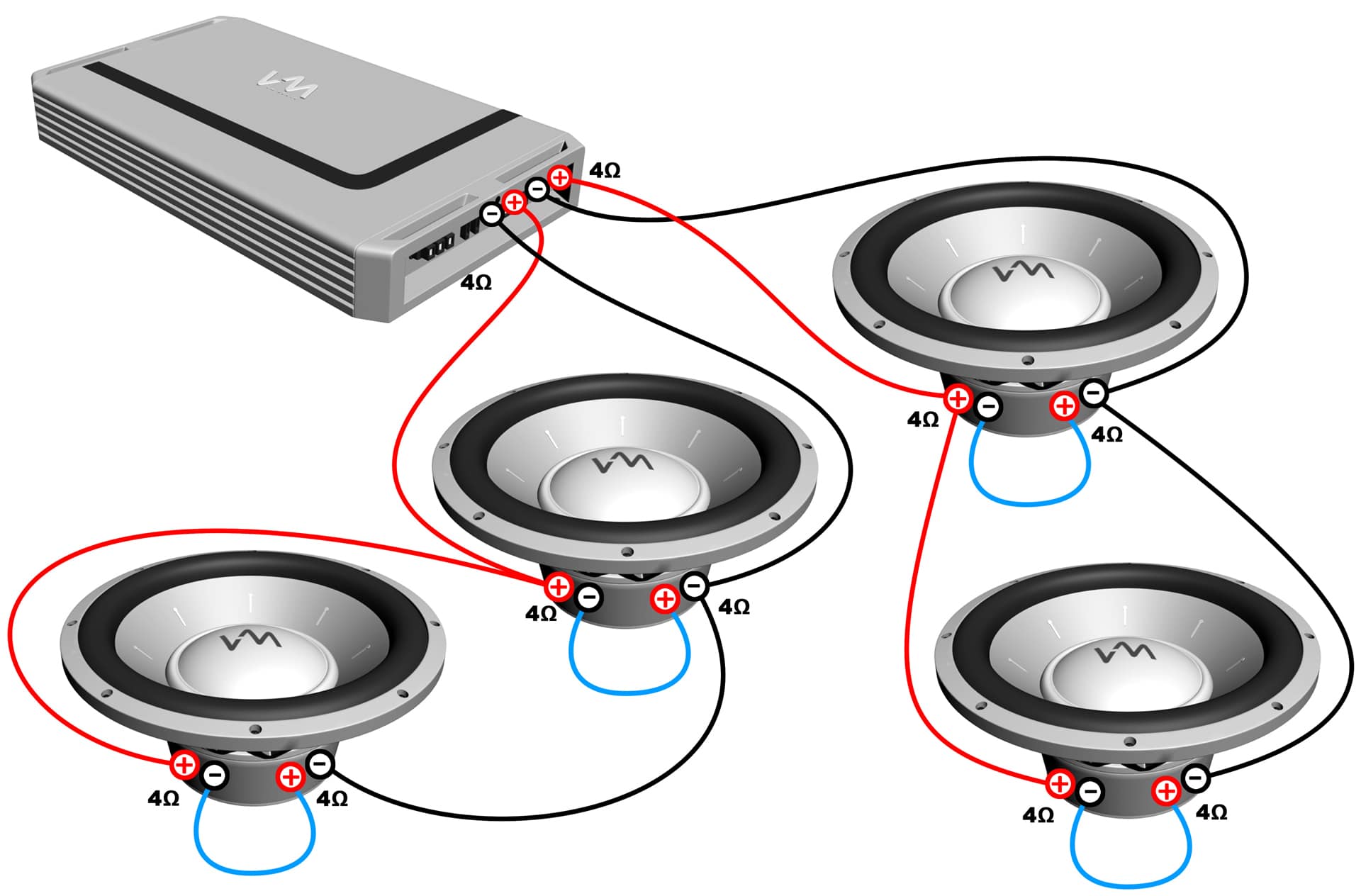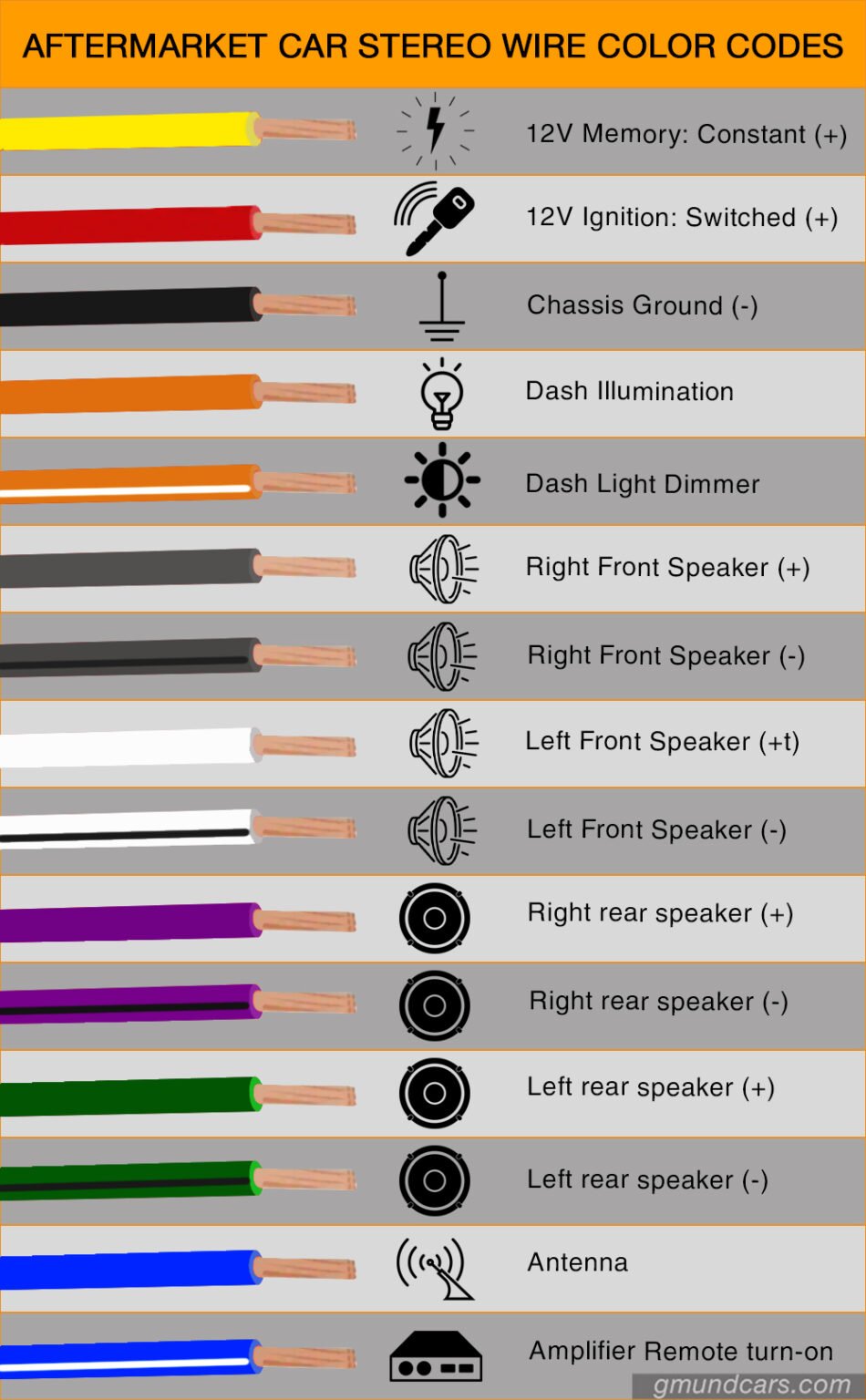Ever wondered about the significance of those colored stripes on your speaker wires? It's more than just aesthetics. Understanding speaker wire color is crucial for proper audio system setup and optimal sound performance. This comprehensive guide will delve into the world of speaker wire hues, unraveling their meaning and importance.
Connecting your speakers correctly hinges on identifying the positive and negative terminals. Wire colors are the key to this identification, ensuring the correct flow of electrical signals. Mismatched connections can lead to phase cancellation, diminishing sound quality and potentially damaging your equipment. Let's explore the nuances of speaker wire coloration and how it impacts your audio experience.
Typically, speaker wire utilizes a two-color system to differentiate polarity. One wire will have a solid color or a stripe, indicating the positive (+) terminal, while the other will be a different color or unmarked, representing the negative (-) terminal. Common color combinations include red/black, white/black, and copper/silver. However, variations exist, highlighting the need for careful examination and testing.
Historically, standardized color coding for speaker wire wasn't universally adopted. Manufacturers often used different schemes, leading to some confusion. While conventions have emerged over time, it's always prudent to double-check wiring diagrams or consult the manufacturer's specifications for your specific equipment.
The importance of correct speaker wire polarity cannot be overstated. Proper connection ensures that both speakers move in the same direction, creating a cohesive sound wave. Incorrect polarity leads to phase cancellation, where sound waves interfere destructively, resulting in a weakened bass response and an overall muddy sound.
A simple example illustrates this: imagine two speakers playing the same low note. If connected correctly (in phase), the sound waves reinforce each other, producing a rich bass tone. However, if one speaker is out of phase, the sound waves cancel each other out, diminishing the bass and impacting overall sound quality.
One benefit of understanding speaker wire color codes is avoiding potential damage to your audio equipment. Incorrect wiring can lead to electrical shorts and damage amplifiers or speakers. Proper wiring ensures the safe and efficient operation of your audio system.
Another benefit is achieving optimal sound quality. Correct polarity ensures that your speakers work harmoniously, delivering the full intended audio spectrum. This translates to a richer, more balanced sound experience.
Furthermore, understanding wire color codes simplifies the setup process. Quickly identifying positive and negative terminals speeds up connections, reducing the time and effort required for installation.
A practical action plan involves visually inspecting the wires, consulting the equipment manuals, and using a multimeter if necessary to verify polarity. Successful examples include consistently clear and powerful sound reproduction and a trouble-free audio setup.
Frequently Asked Questions:
1. What if my speaker wire is only one color? Consult the manufacturer's documentation or use a multimeter to identify polarity.
2. Can I use different colored wires for the same speaker system? Consistency is key. Stick to the same color scheme throughout.
3. Does wire gauge affect color coding? No, wire gauge relates to current carrying capacity, not polarity.
4. What does a striped wire indicate? Usually, the striped wire represents the positive terminal.
5. My speakers sound weak. Could it be a wiring issue? Yes, incorrect polarity can cause phase cancellation, resulting in a weak sound, especially in the bass frequencies.
6. Can I extend speaker wire by joining different colored wires? Yes, but ensure correct polarity is maintained at the joints.
7. How can I test speaker wire polarity with a multimeter? Set the multimeter to DC voltage and touch the probes to the wire ends. A positive reading indicates correct polarity.
8. What if my speaker doesn't have marked terminals? Consult the speaker's documentation for polarity identification.
Tips and Tricks: Always double-check your connections. Use color-coded tape or markers to label wires clearly, especially in complex setups. Take photos of your wiring for future reference.
Understanding speaker wire color codes is paramount for a seamless and enjoyable audio experience. By paying attention to polarity and following best practices, you can ensure optimal sound quality, protect your equipment, and simplify your setup process. Take the time to decipher the color codes on your speaker wires – your ears will thank you. Invest a few minutes to understand these principles, and you'll be rewarded with a richer, more immersive listening experience. Don't hesitate to consult resources like online forums, audio guides, or professional installers for further assistance. Ensuring proper polarity not only maximizes sound quality but also safeguards your audio investment.
Jiangsu huayu electrical technology a deep dive
The art of matching pfps a symphony of friendship humor and digital identity
Enchant your screen a guide to witch aesthetic computer wallpapers
Jvc Wiring Harness Color Code - Khao Tick On
1996 Explorer Speaker Wiring Harness - Khao Tick On
Toyota Corolla Speaker Wire Colors - Khao Tick On
Kenwood Stereo Wiring Diagram Color Code - Khao Tick On
Toyota Hilux Radio Code at Martha Mcgray blog - Khao Tick On
Speaker Color Code at David Thorp blog - Khao Tick On
How To Connect Wire - Khao Tick On
Kenworth Dash Light Dimmer Switch at Tracy Washington blog - Khao Tick On
Chrysler 300 Speaker Wire Colors - Khao Tick On
Cadillac Speaker Wire Colors - Khao Tick On
Chevy Speaker Wire Color Code - Khao Tick On
what color is speaker wire - Khao Tick On
How To Connect Amp To Sub - Khao Tick On
Car Stereo Power Wire - Khao Tick On
Pioneer Speaker Wire Colors - Khao Tick On














